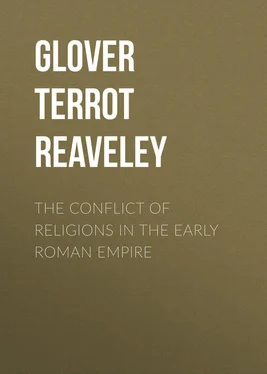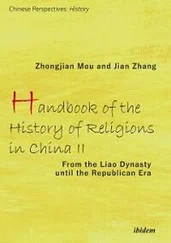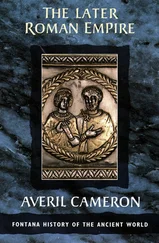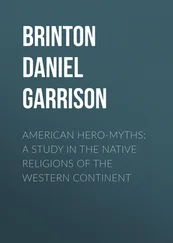Terrot Glover - The Conflict of Religions in the Early Roman Empire
Здесь есть возможность читать онлайн «Terrot Glover - The Conflict of Religions in the Early Roman Empire» — ознакомительный отрывок электронной книги совершенно бесплатно, а после прочтения отрывка купить полную версию. В некоторых случаях можно слушать аудио, скачать через торрент в формате fb2 и присутствует краткое содержание. Жанр: foreign_religion, foreign_antique, foreign_prose, на английском языке. Описание произведения, (предисловие) а так же отзывы посетителей доступны на портале библиотеки ЛибКат.
- Название:The Conflict of Religions in the Early Roman Empire
- Автор:
- Жанр:
- Год:неизвестен
- ISBN:нет данных
- Рейтинг книги:4 / 5. Голосов: 1
-
Избранное:Добавить в избранное
- Отзывы:
-
Ваша оценка:
- 80
- 1
- 2
- 3
- 4
- 5
The Conflict of Religions in the Early Roman Empire: краткое содержание, описание и аннотация
Предлагаем к чтению аннотацию, описание, краткое содержание или предисловие (зависит от того, что написал сам автор книги «The Conflict of Religions in the Early Roman Empire»). Если вы не нашли необходимую информацию о книге — напишите в комментариях, мы постараемся отыскать её.
The Conflict of Religions in the Early Roman Empire — читать онлайн ознакомительный отрывок
Ниже представлен текст книги, разбитый по страницам. Система сохранения места последней прочитанной страницы, позволяет с удобством читать онлайн бесплатно книгу «The Conflict of Religions in the Early Roman Empire», без необходимости каждый раз заново искать на чём Вы остановились. Поставьте закладку, и сможете в любой момент перейти на страницу, на которой закончили чтение.
Интервал:
Закладка:
It was not merely gods that came from the East, but a new series of religious ideas. Here were religions that claimed the whole of life, that taught of moral pollution and of reconciliation, that gave anew the old sacramental value to rituals, – religions of priest and devotee, equalizing rich and poor, save for the cost of holy rites, and giving to women the consciousness of life in touch with the divine. The eunuch priests of Cybele and the monks of Serapis introduced a new abstinence to Western thought. It is significant that Christian monasticism and the coenobite life began in Egypt, where, as we learn from papyri found in recent years, great monasteries of Serapis existed long before our era. Side by side with celibacy came vegetarianism.
No polytheistic religion can exclude gods from its pantheon; all divinities that man can devise have a right there. Thus Cybele and Isis made peace with each other and with all the gods and goddesses whom they met in their travels – and with all the dæmonia too. Their cults were steeped in superstition, and swung to and fro between continence and sensuality. They orientalized every religion of the West and developed every superstitious and romantic tendency. In the long run, they brought Philosophy to its knees, abasing it to be the apologist of everything they taught and did, and dignifying themselves by giving a philosophic colouring to their mysticism. But this is no strange thing. A religion begins in magic with rites and symbols that belong to the crudest Nature-worship – to agriculture, for instance, and the reproductive organs – and gradually develops or absorbs higher ideas, till it may reach the unity of the godhead and the immortality of the soul; but the ultimate question is, will it cut itself clear of its past? And this the religions of Cybele and Isis never satisfactorily achieved.
In the meantime they promised little towards a moral regeneration of society. They offered men and women emotions, but they scarcely touched morality. To the terrors of life, already many enough, they added crowning fears, and cramped and dwarfed the minds of men.
Lucretius
"O hapless race of men!" cried Lucretius, "when they attributed such deeds to the gods and added cruel anger thereto! what groanings did they then beget for themselves, what wounds for us, what tears for our children's children! No act of piety is it to be often seen with veiled head turning toward a stone, to haunt every altar, to lie prostrate on the ground with hands outspread before the shrines of gods, to sprinkle the altars with much blood of beasts and link vow to vow – no! rather to be able to look on all things with a mind at peace."[ 88 88 Lucr. v, 1194.
] And a mind at peace was the last thing that contemporary religion could offer to any one. "Human life," he says, "lay visibly before men's eyes foully crushed to earth under the weight of Religion, who showed her head from the quarters of heaven with hideous aspect lowering upon men," till Epicurus "dared first to uplift mortal eyes against her face and first to withstand her… The living force of his soul gained the day; on he passed far beyond the flaming walls of the world and traversed in mind and spirit the immeasurable universe. And thence he returns again a conqueror, to tell us what can and what cannot come into being; in short on what principle each thing has its powers defined, its deep-set boundary mark. So Religion is put under our feet and trampled upon in its turn; while as for us, his victory sets us on a level with heaven."[ 89 89 Lucr. i, 62-79.
]
It was the establishment of law which brought peace to Lucretius. In the ease of mind which we see he gained from the contemplation of the fixity of cause and effect, in the enthusiasm with which he emphasizes such words as rationes , fædera , leges , with which he celebrates Natura gubernans , we can read the horrible weight upon a feeling soul of a world distracted by the incalculable caprices of a myriad of divine or dæmonic beings.[ 90 90 See Patin, La Poésie Latine , i, 120.
] The force with which he flings himself against the doctrine of a future life shows that it is a fight for freedom. If men would rid themselves of "the dread of something after death" – and they could if they would, for reason will do it – they could live in "the serene temples of the wise"; the gods would pass from their minds; bereavement would lose its sting, and life would no longer be brutalized by the cruelties of terror. Avarice, treachery, murder, civil war, suicide – all these things are the fruit of this fear of death.[ 91 91 Lucr. iii, 60 f.
]
Religion, similarly, "often and often has given birth to sinful and unholy deeds." The illustration, which he uses, is the sacrifice of Iphigenia, and it seems a little remote. Yet Pliny says that in 97 B.C. in the consulship of Lentulus and Crassus, a decree of the Senate forbade human sacrifice — ne homo immolaretur . "It cannot be estimated," he goes on, "what a debt is owed to the Romans who have done away (in Gaul and Britain) with monstrous rites, in which it was counted the height of religion to kill a man, and a most healthful thing to eat him."[ 92 92 Pliny, N.H. xxx, 12, 13. Warde Fowler, Roman Festivals , pp. 111 f. on the Argei and the whole question of human sacrifice. For Plutarch's explanation of it as due not to gods but to evil demons who enforced it, see p. 107.
] Elsewhere he hints darkly at his own age having seen something of the kind, and there is an obscure allusion in Plutarch's life of Marcellus to "unspeakable rites, that none may see, which are performed (?) upon Greeks and Gauls."[ 93 93 Pliny, N.H. xxviii, 12; Plutarch, Marcellus , 3, where, however, the meaning may only be that the rites are done in symbol; he refers to the actual sacrifice of human beings in the past. See Tertullian, Apol. 9 on sacrifice of children in Africa in the reign of Tiberius.
] "At the temple of Aricia," says Strabo, "there is a barbarian and Scythian practice. For there is there established a priest, a runaway slave, who has killed with his own hand his predecessor. There he is, then, ever sword in hand, peering round about, lest he should be attacked, ready to defend himself." Strabo's description of the temple on the lake and the precipice overhanging it adds to the impressiveness of the scene he thus pictures.[ 94 94 Strabo, c. 239. Strabo was a contemporary of Augustus. Cf. J. G. Frazer, Adonis Attis Osiris , p. 63, for another instance in this period.
] If human sacrifice was rare in practice, none the less it was in the minds of men.
Tantum religio potuit suadere malorum
concludes Lucretius, and yet it was not perhaps his last thought.
M. Patin has a fine study of the poet in which he deals with "the anti-Lucretius in Lucretius." Even in the matter of religion, his keen observation of Nature frequently suggests difficulties which are more powerfully expressed and more convincing than the arguments with which he himself tries to refute them. "When we look up to the heavenly regions of the great universe, the æther set on high above the glittering stars, and the thought comes into our mind of the sun and moon and their courses; then indeed in hearts laden with other woes that doubt too begins to wake and raise its head – can it be perchance, after all, that we have to do with some vast Divine power that wheels those bright stars each in his orbit? Again who is there whose mind does not shrink into itself with fear of the gods, whose limbs do not creep with terror, when the parched earth rocks under horrible blow of the thunderbolt, and the roar sweeps over the vast sky? … When too the utmost fury of the wild wind scours the sea and sweeps over its waters the admiral with his stout legions and his elephants, does he not in prayer seek peace with the gods? … but all in vain, since, full oft, caught in the whirlwind, he is driven, for all his prayers, on, on to the shoals of death. Thus does some hidden power trample on mankind… Again, when the whole earth rocks under their feet, and towns fall at the shock or hang ready to collapse, what wonder if men despise themselves, and make over to the gods high prerogative and marvellous powers to govern all things?"[ 95 95 Lucr. v, 1204-1240. We may compare Browning's Bp. Blougram on the instability of unbelief: — Just when we are safest, there's a sunset-touch, A fancy from a flower-bell, some one's death, A chorus-ending from Euripides — And that's enough for fifty hopes and fears As old and new at once as nature's self, To rap and knock and enter in our soul, Take hands and dance there, a fantastic ring, Round the ancient idol, on his base again, — The grand Perhaps! We look on helplessly.
]
Интервал:
Закладка:
Похожие книги на «The Conflict of Religions in the Early Roman Empire»
Представляем Вашему вниманию похожие книги на «The Conflict of Religions in the Early Roman Empire» списком для выбора. Мы отобрали схожую по названию и смыслу литературу в надежде предоставить читателям больше вариантов отыскать новые, интересные, ещё непрочитанные произведения.
Обсуждение, отзывы о книге «The Conflict of Religions in the Early Roman Empire» и просто собственные мнения читателей. Оставьте ваши комментарии, напишите, что Вы думаете о произведении, его смысле или главных героях. Укажите что конкретно понравилось, а что нет, и почему Вы так считаете.












